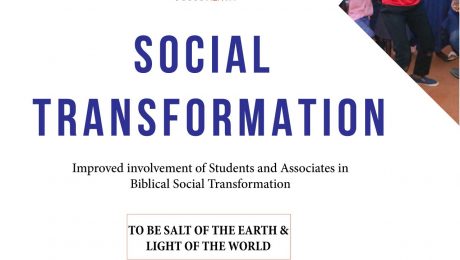“For one would scarcely die for a righteous person- though perhaps for a good reason one would dare even to die” (Romans 5:7). The most obvious statement to follow this that is grammatically correct is, “How much less for a wicked person?” However, Paul adds that Christ died for us when we were still sinners- to demonstrate God’s love for us.
I as not just a spectator
The most humbling revelation for me in this Easter is that I was not just a spectator staring at the horrible experience of Christ on the cross, but was actually an active participant in his torment, torture, and eventually his death. I acknowledge my contribution to the pain and affliction of the Son of God. Canon Peter Green (1871-1961) once said that only the man who is prepared to own his share in the guilt of the cross may claim his share in its grace. I did ask for Barabbas my partner in crime to be released in his stead. I can see my hands striking his face in contempt, I can see my hands fabricating the crown of thorns and mockingly putting it on his head, I can hear by unbridled tongue utterings insults, curses, and slander to the Christ. And to seal his fate, I drive an iron-headed sharp spear to his side, and there gushes out water and blood.
The judicial exchange took place
Yes, I did kill him. But Jesus looked at me and my partners in crime and said, “Forgive them Father for they know not what they are doing” (Luke 23:34). We never knew that his death was substitutional and that we should have been the ones hanging there. We thought we had defeated and dispossessed him, little did we know that that was his grand moment of victory. In our eyes, we thought our hands had crucified him and the nails held him there, little did we know that God’s love, plan, timing, and purpose were at work through him. And yes, he forgave my ignorance, foolhardiness, and betrayal. He forgave my rejection of him and my denial of him. The judicial exchange took place- the sinner went away free and forgiven while the sinless faced the pangs of death.
Your sins are forgiven
Yes, I did receive his forgiveness of sins. Today I gaze at the cross with tears of joy. His light and truth have dawned on me. I stand with Paul in saying that ‘we have peace with God through our Lord Jesus Christ” (Romans 5:1). I rejoice in the prestigious gift of access to the Father through his grace. My shame and guilt have been overcome by the unconditional and unending love of God. I tapped into the richness of his goodness, I have tasted this Jesus and I know he is sweet. Jesus has made me whole again and I recipient of his gift of forgiveness. How I loathe my sin, how I detest my disobedience, and long for the daily words of Christ, “Your sins are, forgiven” (Luke 5:20).
History shows that the ways of man are wicked and the heart continues to devise new ways of sinning. A survey of the old testament will show you the warped nature of man. Idolatry quickly replaced the worship of Yahweh shortly after a miraculous deliverance from Egypt. Sodom and Gomorrah is a clear demonstration of how far men can exercise wickedness.
Today, the wicked are not only bold in their actions but also call out for recognition. The LGBTQ community, for example, endeavors to be recognized by the world. Some in this community have sought help, while others suffer in silence for fear of stigmatization. Today, we appreciate the fact that there those that are coming out and confessing and seeking the necessary support system. However, a big percentage is seeking to normalize their behavior. They want everyone else to believe in their agenda to normalize what “God gave them up in the lusts of their hearts to impurity, to the dishonoring of their bodies among themselves…” Romans 1:24.
A number of media influencers are using new media as well as mainstream media to promote ‘promiscuity’ and indecency. All these in a bid to promote fashion trends and the ‘new normal.’ Efforts to bring some sanity and regulate the media content has earned the KFCB chairperson names. It has been alleged that his efforts and those of the board violate human rights; the freedom of expression. But is it freedom of expression really?
The world has conspired against morals and ganged against chastity
The world’s agenda is to normalize what is wicked. However, the righteous should endeavor to preach and promote what is right; chastity. The righteous should not give up the fight no matter how difficult it is. This is not an easy affair, but if it is not done, the world will dictate the narrative. That is why we must talk about chastity.
As the righteous shout, they need to take into consideration four things.
Firstly, the righteousness they have is not “that which comes from the law, but that which is through faith in Christ—the righteousness that comes from God on the basis of faith.” (Philippians 3:9) Because God made him who had no sin to be sin for us, so that in him we might become the righteousness of God. (2 Corinthian 5:21) As such one cannot boast but in humility call out to those perishing. We call them to the righteousness of God so that they can be saved.
Secondly, we need to acknowledge that unless someone points out the sin of those perishing, they may never lose their candidature for hell. Paul logically presents this argument by raising important questions. He asks “How, then, can they call on the one they have not believed in? And how can they believe in the one of whom they have not heard? And how can they hear without someone preaching to them?” Romans 10:14. One may ask, why single out chastity among many sins possible for any sinner. Why can’t we just preach the Gospel and people would turn away from sin. The Gospel liberates the enslaved. Sexual sin is one of the chains that enslave people. Singling out among many chains is like the radio rays that are directed to specific cancerous cells. By doing so, the therapist focuses on the affected areas even though the patient might have other ailments. There come such times in preaching the gospel. And such are like this week when FOCUS Kenya is running a chastity campaign with an aim of raising awareness on the need to pursue sexual purity amidst the dissenting voices.
Thirdly, the righteous need to appreciate their own fallen nature and the continued need to rely on the grace of God for triumph. Acknowledging that one is a sinner saved by the grace of God and calls out other sinners. This one therefore should not sit on the judgment seat which only God should occupy. Therefore, we should not condemn those that we are calling out of sexual immorality but through love invite them to liberation through the grace of God.
Finally, upon acknowledging their fragility, they, too, need support from the body of believers. As they seek to support others, accountability is key. A righteous man may fall seven times and rise again, But the wicked shall fall by calamity. (Proverbs 24:16-18)
In 2016, FOCUS launched the Chastity Campaign dubbed #MwiliWanguMaliyaMungu which involved a study Guide on Sexuality “Pursuing Sexual Purity” (available at the FOCUS Bookstall). Among the activities then was the Chastity walk on 16th February 2016, held across the country by Christian Unions. These events culminated on a day set apart when participants prayerfully signed purity pledge cards. While the cards just like any other symbolic figures such as wedding rings, didn’t have any magic or spiritual powers to keep anyone pure, they act and continue to act as reminders to the commitment made by individuals. Besides, the reminder, individuals had an opportunity to choose accountability partners who are a critical support system in the pursuit of sexual purity. FOCUS continues to facilitate this campaign every month of February since then. May as many who are seeking help find the support they need now and even in the future. Should you want to make the commitment for sexual purity, you can visit http://focuskenya.org/chastity
In conclusion, believers need not shy from talking about chastity. This will not only reach the lost but also encourage those pursuing purity and encounter daily struggles. It is by God’s grace that we snatch some from the fire while there is still time. We should not forget that we are equally weak and need to continually look up to God to help us in the journey of seeking sexual purity.
The predominant conversation every February is around the demonstration of love. As we near February 14th, all manner of conversations go around the media and social circles. The frenzy is higher each year as the emphasis targets outdoing the previous achievements.
Danger lurks because a thief has crept in the sheep-pen (our hearts) and in a voice different from the Shepherd’s, tried to create rumbles of discontentment. Like at the garden of Eden, the goodness of God can be veiled and His incomparable attributes suppressed as we exchange His truths for a LIE (Rom 1:18-24). The word in the streets is that if it feels good, it definitely is good. That’s the trap that presents so cheaply a degradation of sexual purity as God intended of it. These streets have overwhelmed us with casually promoting immorality even in the most innocent circumstances. Like in Romans 1:24, the applauds of dishonoring our bodies are as loud as the condemnations of chastity. The running theme has idolized bodies and lustful gratification.
The narratives have served to force veils on the eyes of society. Today’s world rationalizes how it pursues lustful passions. An unguarded heart accepts the wave of attraction towards whatever hypes up the endorphins and oxytocins (the fuzzy hormones). The snippets of explicit scenes in films, flash fantasies in the mind, texts hidden behind multiple passwords, all the way to masturbation, pornography and illicit sex show the darkness in the heart of man. Young adults, save for the help of the Lord, are subscribing to notions of self-ownership and self-serving love that has so far knocked out any boundaries around sexuality. The very horrifying pit can only get worse with the passing on of the decay to the generations after.
For these things was Christ crucified, that we would not be passions’-serving, lust-fanning and darkness-loving. Christ shines so brightly to the heart of men that even when we are in the darkest darkness, there His light shines (Psalm 139:11-12). But since the thief in the sheep-pen would rather have us doubt the truth of an omnipresent Lord, He has offered an extra trap in hiding lust. For a moment one is convinced that they’d not be served public shame as David in Matthew 1:6. A false security is embraced and a comfort that nobody is likely to know what transpired. Oh, how our bones waste away in the silence (Psalm 32:3)! In the fatigue of the heart that doesn’t pursue the Lord’s forgiveness, is the hideous deception to normalize the brokenness.
Perhaps if those who know the Shepherd would beckon to the sheep vulnerable to the enemy’s noise, there would be more refrain. Maybe what we need to do as the salt of the earth is get out of the salt shakers where lies the comfort of being salt among salt, a cohort of like-minded believers. The conversation on chastity, the sum of the convictions we have gathered needs to go beyond our Christian accountability circles to the ears that have been trapped into sexual sin. We need to be salt to the veiled, the naive and vulnerable, the hardened in heart, and the secretive sinners. The voice of truth needs to be amplified above the noises of deception.
For the believer, the unobstructed city on a hill, the house on the firm foundation, the sheep with a Shepherd; we must resolve in our hearts to honor God with our sexuality and set an example in radical living. Gentle outreaches of our firm grounding should be done throughout; in and out of Valentine’s week. We should seek on our knees the preservation of those we know and the rescue of those around us. We must hold firm to the goodness of the Lord who ordains every season and time, keeping ourselves pure. For the fruit that is visible is more attractive than the one that bears the promise of ever fruiting. Our first influence is living above reproach then raising our voices in hope of the redemption of our brothers and sisters in the world!
In the new FOCUS Kenya Strategic Plan for 2021-2025, Social Transformation is one of the Strategic Priority Area (SPA 4). Some would wonder what exactly is Social Transformation, what the expected results are, and what it has to do with Christians. Others would be wondering why it is significant for a Christian movement/organization like FOCUS Kenya to spend resources, time, and efforts on such issues. Shouldn’t we be just depopulating hell through passionate evangelism? This article attempts to answer these questions and possibly inspire you to join in the journey for the next five years of Improved involvement of Students and Associates in Biblical Social Transformation.
The deficit in the practice of the Christian faith
According to the 2019 Kenya Population and Housing Census Report, 85.5 percent of the population are Christians; Protestants, Catholics, and Evangelical churches accounting for 33.4, 20.6, and 20.4 percent, respectively (Kenya F. , 2020). One would consider this a critical mass for Social Transformation, yet there are many social, economic, and political challenges in our country. For example, in the universities and colleges, there is massive exam cheating, gambling, deliberately missing classes, drug and substance abuse, negative ethnicity, homicides among others. Insecurity, mental health challenges, poor sanitation, and water scarcity are also evident in our institutions. In our country poverty, diseases such as cholera, high infant mortality rate, injustices, massive unemployment, bad governance, and corruption are issues we face every day. One does not need a close look to notice issues of gender-based violence, early marriages, exploitation of the poor, among others In our communities.
These challenges point to the possible deficit in the practice of the Christian faith. They are rooted in the sinfulness of human beings, and they demand God’s people to respond through evangelism and radical compassion through Social Action (Fellowship, 1982); offering immediate relief but working to change the unjust systems causing the oppression and social evils both in institutions of higher learning and in our nation.
Kenyans agree that something is not right and there is a need for change, especially in the value system, nurturing common good and integrity at all levels, and building patriotism. Christian students in the institutions of higher learning and graduates need to answer to questions such as; what role can they play in bringing the needed transformation? How should their faith in Jesus Christ respond and inform social transformation? How do they contribute to building a country we are all proud of? These are questions SPA 4 seeks to answer by creating awareness, building capacity for engagement, and providing opportunities for transformation both at an individual level and as a community. We believe students and graduates provide a critical mass in the application of the Christian faith at an individual and societal level. Ideally, a transformation from a Christian community is expected due to a considerable influence of Christianity leading to fewer social vices. Biblical doctrines and teachings should transform individual lives, trickling down to the society to ensure economic prosperity, political stability, moral and social sanity, low rates of corruption, and love for their “neighbors”.
In a society with 85.5% Christians, the value system should be that of integrity, people living with positivity and are actively engaging in social transformation through faithfully adopting biblical principles and teachings in their lives and systems (Beyers, 2017).
Is it a question of how or whether?
Transformation in a biblical view is the change from a way of life that is contrary to God’s purpose to one in which people can enjoy the fullness of life in harmony with God (John10:10, Eph 4:13 & Col 3:8-15). This transformation is possible when individuals and communities are obedient to the Gospel of Jesus Christ.
Social Transformation is a fundamental change in society brought about by gradual and incremental changes in different aspects of society. It involves changes in different areas or aspects of society that are interdependent, where a change in one sub-system influences changes in another, and when the changes reinforce each other, they give overall sustainable development (Kenya F., 2019).
Another common phrase is Social Change, which is a way human interactions and relationships transform social and cultural institutions over time, having a profound impact on society especially through social movements such as the fight for a multi-party system in Kenya, civil rights movement in the USA, legalization of abortion in different societies in the world that previously were against it. These movements have changed relationships, institutions, and cultural norms over time (Dunfey, 2019).
The question is not whether Christianity promotes social change but in what ways and conditions it promotes or inhibits change. Transformation is possible when godly principles directly influence people’s perceptions and actions. And when there is a leadership that can express desired change, motivate action, and provide direction for a critical mass of people. Historically, Christianity has caused societal transformation through normal believers ingraining biblical principles in the society and transformational leaders. Martin Luther King Junior led the civil rights movement in the USA. David Gitari used his platform as a Bishop to speak truth to the political leadership and actively engaged in the democratization of Kenya. Timothy Njoya advocated for political and social justice reforms in Kenya. And Abraham Lincoln led the emancipation of slaves in America. These men inspired and led social transformation because their Christian faith formed a potent basis of authority in their pursuit for change (Erasmus, 2004).
God is both the creator and the judge of all men. Christians should therefore share His concern for justice and reconciliation in every aspect of human society and liberation of every man from every kind of oppression. One of the most fundamental truths that should inspire Christians involvements in social transformation is that man is made in the image of God, regardless of color, race, religion, class, sex, or age, and has an intrinsic dignity that should be respected, served, and not exploited (Congress, 1974). Social transformation is about expressing the teachings of God, our love for our neighbors, and our obedience to Jesus Christ. Christian faith inspires a love for people but also a judgment on every form of oppression, discrimination, alienation and should therefore denounce injustice and evil wherever it exists (Congress, 1974). The bible says believers were “created in Christ Jesus for good works which God prepared beforehand, that we should walk in them” (Eph. 2: 10). Good works cannot save, but they are indispensable evidence of salvation (James 2:14-26). What are your good works? How evident are they?
Can we count on you now and here?
As we implement the Strategic Priority Area 4; Social Transformation, we hope to inspire students and Christian professionals to become conscientious students and citizens who take personal initiative to bring transformation.
For students in institutions of higher learning, we hope they will become Christians who take initiatives, create and lead social programs, be informed and participate in political issues in their institutions and nationally, advocate and dissent according to biblical principles. We hope and pray they will build movements, join groups and associations that champion specific issues in their institutions and communities. We also hope they will research socio-economic issues, and organize appropriate action. Finally, we hope they will use their training for the good of their communities as they solve socio-economic problems.
For Associates, we look forward to seeing business leaders championing reforms in our labor rights, improved working conditions, and fair treatment of workers. We hope to see you on the front line, advocating and lobbying for better social services from the government. We hope that you will be encouraged to take up challenging positions for the greater good, join a political party, run for a political seat, and be part of the change we want to see in this country.
Managing the challenges ahead
As we seek positive transformation through the establishment of God’s kingdom, not only in people’s lives but also in our unjust systems and processes, we appreciate the challenges that await. Individual Christians must be willing to submit and engage in the process of change, as God is shaping and molding into His image and likeness. Change is however a complex process that Charles Kraft, in his book Anthropology of Christian Witness, suggests has to start in the minds of individuals (Cannon, 2017). Through the renewal of their minds, believers, have the opportunity to see the world from God’s eyes and bring the needed transformation. Far too often the church focuses on the individual transformation (which is the start of change and is very critical) but neglects to address God’s call upon them to transform the society around them by being agents of change.
According to John Kotter in his book Leading Change, which he wrote for Harvard Business School, he argues that many change agents act out of a feeling of need after experiencing dissatisfaction, deprivation, or dehumanization. Sometimes they don’t experience this at a personal level, but they have some proximity to people or communities who experience some kind of oppression. They exhibit an openness to change through a clear expression of curiosity, interest, and inclination to experiment. John Kotter also highlights some inhibitors to change which are very critical to understand (Cannon, 2017). They include:
- Too much complacency makes people not motivated to do the necessary work for transformation to happen. He says that the quest for change must be inspired by a great deal of passion, urgency, and commitment to overcome complacency. As Kenyan Christians, how tired are we of the situation in our country? Do we have what it takes to overcome complacency?
- Lack of a clear leadership team of committed individuals willing to continually lead the process of change. Who is leading the process of change and transformation and how committed are they?
- Poor understanding of the problem and the root causes of the problem. Most of the time people are focusing on the indicators as opposed to the root causes. It is difficult to pursue intentional change if people do not have a clear idea of the problem they need to address. Most people have an idea that something “just isn’t right” without a clear sense of what the problem might be. The problem is the “software” and it needs to be reset.
- Lack of a clear vision of how different things could be and how to achieve the vision. The Bible says “without vision, the people perish” Proverbs 29:18.
Our hope and work will be focused on overcoming these inhibitors to ensure Christian students and professionals overcome complacency, understand the root causes of the problems, join us in the vision for transformation, and the leadership teams are well equipped for the task ahead.
Conclusion
As highlighted earlier many issues need to change. Social transformation is possible. The question is, how can you and I, inspired by our Christian faith, engage in one or two of those problems so that collectively we can achieve social transformation in Kenya?





